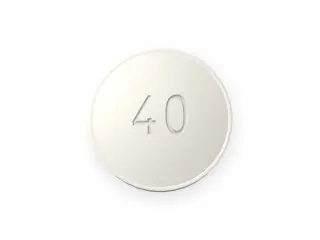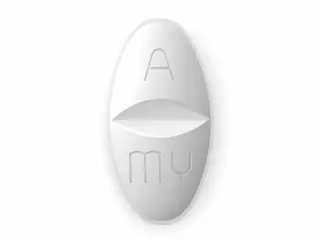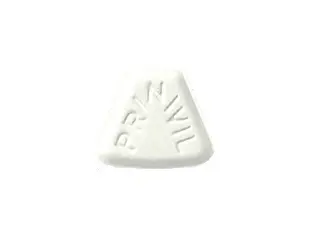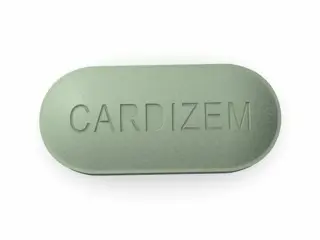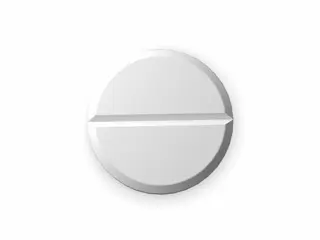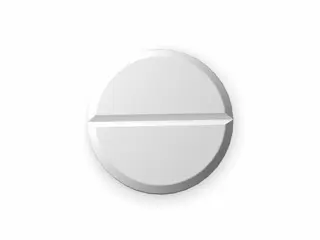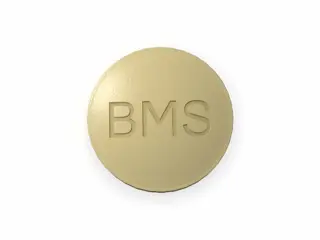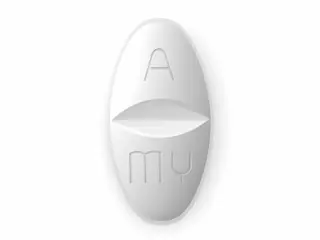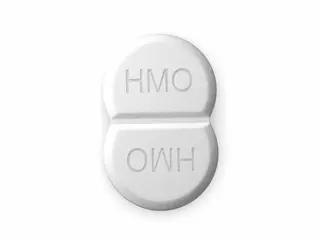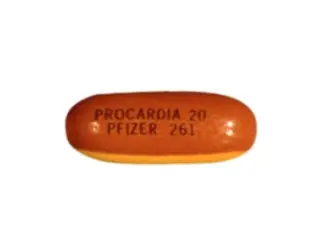Blood Pressure
Find a wide range of trusted blood pressure medications and monitoring devices to help you manage your health effectively. Shop now for quality products designed to support healthy blood pressure levels.
Blood pressure management is crucial for maintaining cardiovascular health. High blood pressure can lead to severe complications if left untreated. There are many medications available to control blood pressure. Each works differently. They are often prescribed depending on the patient's condition and response to treatment. Below is a review of some popular medications in the blood pressure category.
Aceon is an angiotensin-converting enzyme (ACE) inhibitor. It helps relax blood vessels, making it easier for the heart to pump blood. It is often used for patients with hypertension and heart failure. Aceon is usually well-tolerated but can cause cough or dizziness in some patients.
Adalat contains nifedipine, a calcium channel blocker. It works by relaxing the muscles of the heart and blood vessels. Adalat offers quick relief from high blood pressure and improves blood flow. It is useful for patients with angina as well. Side effects may include swelling and flushing.
Aldactone contains spironolactone, a potassium-sparing diuretic. It is effective in controlling blood pressure by reducing water retention. Aldactone also helps patients with heart failure and certain cases of hypertension. Watch for side effects like increased potassium levels and breast tenderness.
Altace (ramipril) is another ACE inhibitor that lowers blood pressure by relaxing blood vessels. It is widely used for preventing heart attacks, strokes, and kidney problems in high-risk patients. Altace is favored for its long-lasting effect and once-daily dosing. Some patients might experience persistent cough.
Avapro contains irbesartan, which belongs to angiotensin receptor blockers (ARBs). It blocks the effects of angiotensin II, leading to relaxed blood vessels and lower blood pressure. It is well-tolerated and rarely causes cough, a common side effect of ACE inhibitors.
Beloc contains metoprolol, a beta-blocker that slows the heart rate and lowers blood pressure. It is useful for patients with high blood pressure, angina, or after heart attacks. Beloc helps reduce the workload on the heart. Side effects can include fatigue and dizziness.
Benicar (olmesartan) is another ARB. It offers effective blood pressure control by inhibiting angiotensin II effects. Benicar is often preferred for patients who cannot tolerate ACE inhibitors. It generally has fewer side effects but can cause dizziness or gastrointestinal upset.
Calan and Calan SR contain verapamil, a calcium channel blocker. Calan SR offers extended release for smoother control. These medications help reduce heart rate and dilate blood vessels. They are good choices for hypertension with concomitant arrhythmias. Common side effects include constipation and swelling.
Cardizem and Cartia XT also use diltiazem, another calcium channel blocker. These drugs help relax the heart and vessels, reducing blood pressure. They are beneficial for patients with angina or arrhythmias. They provide smooth blood pressure control with minimal side effects.
Catapres and Clonidine work centrally by decreasing nerve impulses that tighten blood vessels. They effectively lower blood pressure but can cause drowsiness or dry mouth. These medications are generally used when other drugs are insufficient or in combination therapy.
Combipres combines different antihypertensive agents to improve blood pressure control. Combination therapy is common when single medications are not enough. It simplifies treatment, often reducing the number of pills taken daily.
Coreg (carvedilol) blocks beta and alpha receptors, reducing heart rate and relaxing blood vessels. This dual action makes it effective for hypertension and heart failure. Coreg is well-studied but can cause fatigue and slow heart rate.
Coversyl (perindopril) is another ACE inhibitor that helps widen blood vessels. It lowers blood pressure and protects the heart and kidneys. Coversyl is often prescribed for patients with high cardiovascular risk. Some side effects include cough and elevated potassium.
Cozaar (losartan) is a popular ARB that effectively lowers blood pressure by blocking angiotensin II. It is well-tolerated and frequently used in patients at risk of stroke and kidney disease. Cozaar rarely causes cough and has a good safety profile.
Diltiazem is available in various forms and dosages, allowing personalized blood pressure management. It relaxes heart muscles and blood vessels. It is used to treat hypertension, angina, and some arrhythmias with minimal side effects.
Esidrix is hydrochlorothiazide, a thiazide diuretic. It helps the body get rid of excess salt and water, lowering blood pressure. Esidrix is often a first-line treatment. Side effects may include increased urination and low potassium.
Frumil is a combination of furosemide and potassium-sparing diuretic hydrochlorothiazide. Frumil is used for controlling fluid retention and high blood pressure, especially in heart failure. It requires careful monitoring of electrolytes.
Hytrin (terazosin) relaxes blood vessel muscles and improves urine flow in patients with an enlarged prostate. It also lowers blood pressure. Hytrin may cause dizziness, especially after the first dose.
Hyzaar combines losartan and hydrochlorothiazide. This combination helps control blood pressure by blocking angiotensin II and removing extra salt and water. Hyzaar offers effective blood pressure management with fewer side effects compared to higher doses of single agents.
Inderal and Inderal LA contain propranolol, a non-selective beta-blocker. Propranolol reduces heart rate and blood pressure. It is used for hypertension, angina, and migraine prevention. Side effects include fatigue and cold extremities.
Isoptin and Isoptin SR also contain verapamil. Extended-release formulations provide steady control of blood pressure and heart rate. They are valuable options for patients requiring calcium channel blockers with once-daily dosing.
Lasix (furosemide) is a loop diuretic that helps remove excess fluid. It quickly lowers blood pressure in patients with edema or severe hypertension. Lasix requires monitoring of kidney function and electrolytes due to potential imbalances.
Lisinopril is a widely prescribed ACE inhibitor. It lowers blood pressure by relaxing blood vessels. It is suitable for most patients and provides kidney protection in diabetics. Side effects include persistent dry cough and occasional dizziness.
Lopressor contains metoprolol, which slows the heart and decreases blood pressure. It is effective for hypertension and other heart conditions. Cardioselective metoprolol has fewer respiratory side effects compared to non-selective beta-blockers.
Lozol (indapamide) is a thiazide-like diuretic. It reduces blood pressure by helping the kidneys remove extra salt and water. Lozol has a longer duration compared to standard thiazides and a better side effect profile.
Micardis (telmisartan) is an ARB that blocks the effects of angiotensin II. It is effective for blood pressure control and for protecting heart and kidneys. Micardis has a long half-life, allowing once-daily dosing.
Microzide is another hydrochlorothiazide brand. Thiazide diuretics are considered first-line treatment for hypertension due to their efficacy and low cost. Microzide helps reduce fluid load and blood pressure with mild side effects.
Minipress (prazosin) is an alpha-blocker. It relaxes blood vessels, lowering blood pressure. Minipress is sometimes used for resistant hypertension or large prostate. It can cause dizziness and a sudden drop in blood pressure on standing.
Norvasc (amlodipine) is a long-acting calcium channel blocker. It lowers blood pressure by relaxing arteries and improving blood flow. Norvasc is well-tolerated and popular due to once-daily dosing and few side effects.
Prinivil (lisinopril) is effective for hypertension and heart failure. It reduces blood pressure and protects organs from damage. Prinivil is generally safe, but patients should be aware of potential dry cough or elevated potassium.
Procardia (nifedipine) is a short-acting calcium channel blocker effective in lowering blood pressure quickly. It is useful for hypertensive emergencies or rapid control. Procardia’s side effects include headache, flushing, and ankle swelling.
Tenormin (atenolol) is a beta-blocker that slows heart rate and reduces blood pressure. It is inexpensive and widely used. Tenormin is cardioselective, causing fewer breathing problems.
Toprol and Toprol XL contain metoprolol in immediate and extended-release forms, respectively. These beta-blockers are helpful in treating hypertension and heart-related conditions. Toprol XL offers convenient once-daily dosing.
Trandate (labetalol) blocks both alpha and beta receptors. It provides rapid blood pressure reduction, often used during hypertensive crises. Trandate is suitable for pregnancy-related hypertension but requires monitoring for low heart rate.
Tritace (ramipril) is a potent ACE inhibitor that protects heart and kidneys while controlling blood pressure. It reduces risks of strokes and heart attacks. Patients may experience cough or headaches.
Vasotec (enalapril) is a common ACE inhibitor that lowers blood pressure and improves heart function. It is used widely for hypertension and heart failure. Vasotec can cause cough and elevated potassium levels.
Verampil and Verapamil facilitate muscle relaxation in blood vessels and the heart. They effectively lower blood pressure and control heart rhythm problems. Side effects may include constipation and dizziness.
Zebeta (bisoprolol) is a beta-1 selective blocker that slows the heart and lowers blood pressure. It is effective for hypertension with fewer lung-related side effects. Zebeta offers once-daily dosing for convenience.
Zestoretic combines lisinopril with hydrochlorothiazide. This combination tackles high blood pressure through two mechanisms. Zestoretic is useful when monotherapy is insufficient. Patients should monitor potassium and kidney function.
Zestril is another brand of lisinopril. It is frequently used for hypertension and heart failure. Easy to take once daily, it helps reduce cardiovascular risks over time. Side effects are similar to other ACE inhibitors.
Choosing the right medication depends on health status, other diseases, and tolerance. Many patients benefit from combining drugs to achieve target blood pressure. Consult a doctor for an individualized treatment plan. Regular monitoring and lifestyle changes enhance treatment success.

